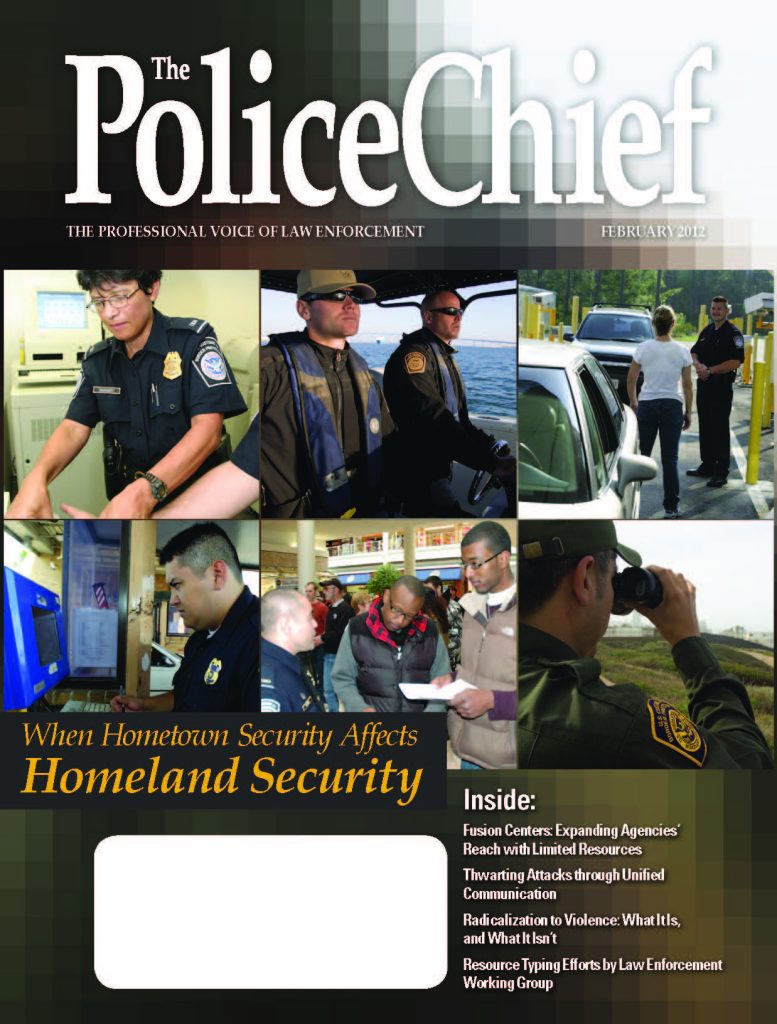
February 2012
Guest Editor: Michael Wager, PhD, IACP
Sharing information, especially potential threat-related information, is crucial to protecting the United States and the country’s communities from terrorist attacks. Agencies at all levels may have various pieces of the puzzle that, when put together, illustrate a real threat that the agencies may not have seen independently. There are, however, many different channels for exchanging information – both formal and informal – that can create confusion and increase the chance that essential details will slip through the cracks. Strong communication channels exist to facilitate threat reporting and information sharing for terrorism prevention. Cover photographs by U.S. Customs and Border Protection, Department of Homeland Security.
Articles
-
Protecting the Homeland: Focusing on Prevention and State, Local, and Tribal Law Enforcement
It has been more than a decade since 9/11, the day when four coordinated suicide plane attacks left nearly 3,000 people dead, including more than 400 fire, police, and emergency medical services heroe... -
Local Policing: Expanding Reach with Limited Resources through Fusion Centers
Sir John Stevens, commissioner of the Metropolitan Police Service in London, United Kingdom, once compared being a police officer in the 21st century to being a man standing on the bank of a very fast... -
Law Enforcement Operations Working Group Focuses Efforts on Resource Typing
An emergency can happen at any time, and issues of identifying the correct resource in the correct configuration for mutual aid requests can not only make or break the response for the host agency but... -
Radicalization to Violence: What It Is, and What It Isn’t
Radicalization to violence is a critical subset of the terrorist threat. It is the process by which individuals—often, but not always, young people—are introduced to an overtly ideological message... -
Unifying Processes for Threat Reporting and Information Sharing to Prevent Terrorist Attacks
Sharing information, especially potential threat-related information, is crucial to protecting the United States and its communities from a terrorist attack. Different agencies, at all levels of gover... -
Closing the Case: Solving Violent Crimes Quickly and Efficiently with Public Records
The job of a police officer is not easy. Tasked with apprehending criminals, maintaining public order and preventing and detecting crimes, police officers put their lives in danger every day. In order...
Columns
- President's Message: Homeland Security Is Hometown Security
- Legislative Alert: D-Block Agreement Not Reached
- IACP Foundation: Foundation Furthers Educational Pursuits of Law Enforcement Leaders
- Chief's Counsel: Last Chance Agreements
- From the Administrator: February 2012
- Line of Duty Deaths: 11/14/2011-12/21/2011
- Product Update: February 2012
- Advances & Applications: February 2012

